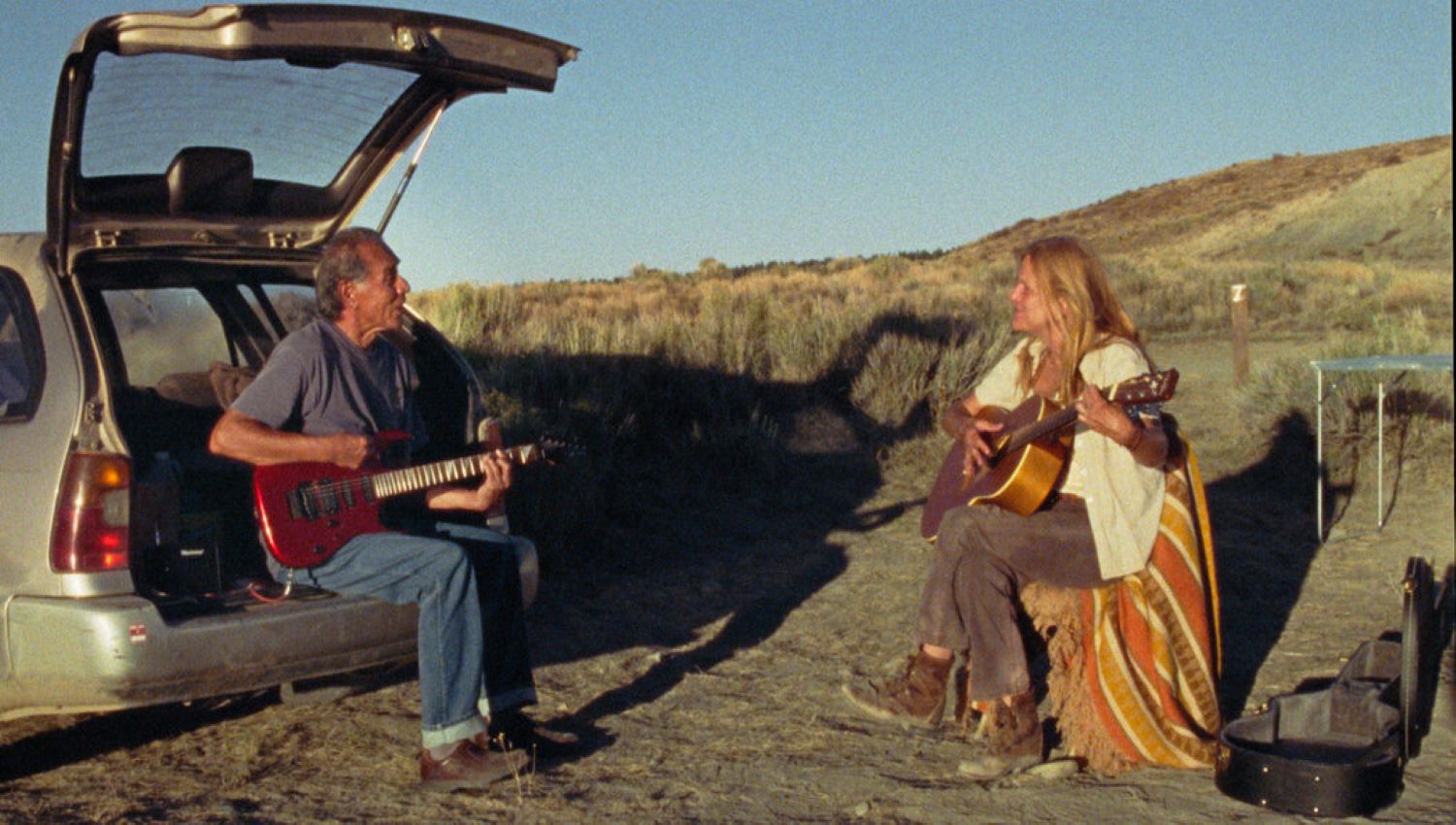Short, sweet, and visually poetic, “A Love Song” is a slice of “Nomadland” with Wes Anderson’s aesthetic. Writer/director Max Walker-Silverman graduates with honors from short films to this, his first full-length feature. Longtime character actress Dale Dickey (“Hell or High Water” and “Winter’s Bone”) finally receives the space for a complete performance. Walker-Silverman leans heavily on editing to advance the narrative more than dialogue. While the story takes place in a single location, the attention to detail draws the viewer into this little lakeside world. It’s intimate, with close-ups of Dickey’s expressive face, yet spacious when focusing on the surrounding Colorado mountains and their warm, dusty color pallet.
Campsite Number Seven is where Faye (Dickey) waits. Her expression conveys that she has been waiting a very long time for something to jolt her out of her routine existence. Faye has everything needed for the wait in her mini-Shasta RV pulled by a tiny little truck. She plants herself on this agreed-upon meeting spot and rests her hope for future happiness on the arrival of a friend from the past. Coffee in the morning, prawns from the lake bed for every meal, Faye’s expression communicates a life with more hardships than blessings. Faye longs to share her intuitive radio (which plays the right song at the right time, she says), ice cream cones, and whatever else remains of herself with someone. If only the hands that wrote the words on her letter would arrive with the black dog and the small silver car.
Contemplating existence following loss is becoming a popular sub-genre with films like “Land,” “Nomadland,” and now “A Love Song,” beautiful and moving, each in their unique way.
Often typecast because of her unique looks and demeanor, a role like Faye is long overdue for Dickey (“My Name is Earl” and “True Blood”). When she appears in a film without much explanation, you know she is a tough character who has led a hard life. Faye allows her depth as an actress. Dickey possesses the unique talent of expressing her thoughts, feelings, and even background story with subtle facial movements or a stare. Only when Wes Studi (“Hostiles” and “The Last of the Mohicans”) arrives on-screen do we get backstory and a sense of who Faye was. Contemplating existence following loss is becoming a popular sub-genre with films like “Land,” “Nomadland,” and now “A Love Song,” beautiful and moving, each in their unique way. These films are also transportive, taking the viewer to locations you don’t usually see on film, which makes them more immersive and even educational.
“Grief is just love with nowhere to go” sums up what Walker-Silverman has ultimately captured in this visual poem. “A Love Song” is about grief as two former friends navigate life without their spouses. The camera and cinematography are expressive, showing feelings instead of explaining them. The editing functions like a Magic 8 Ball, often funny, always abrupt, with cuts of whimsy and even heartbreak. Despite taking place in the current day, the feel of the film is vintage and retro, like the two characters, still functioning but left behind. “A Love Song” might move slowly, but it’s also bursting with life.
Final Thought
“A Love Song” is visually poetic, charming, and deeply felt, anchored at the center by Dale Dickey’s expressive performance.

